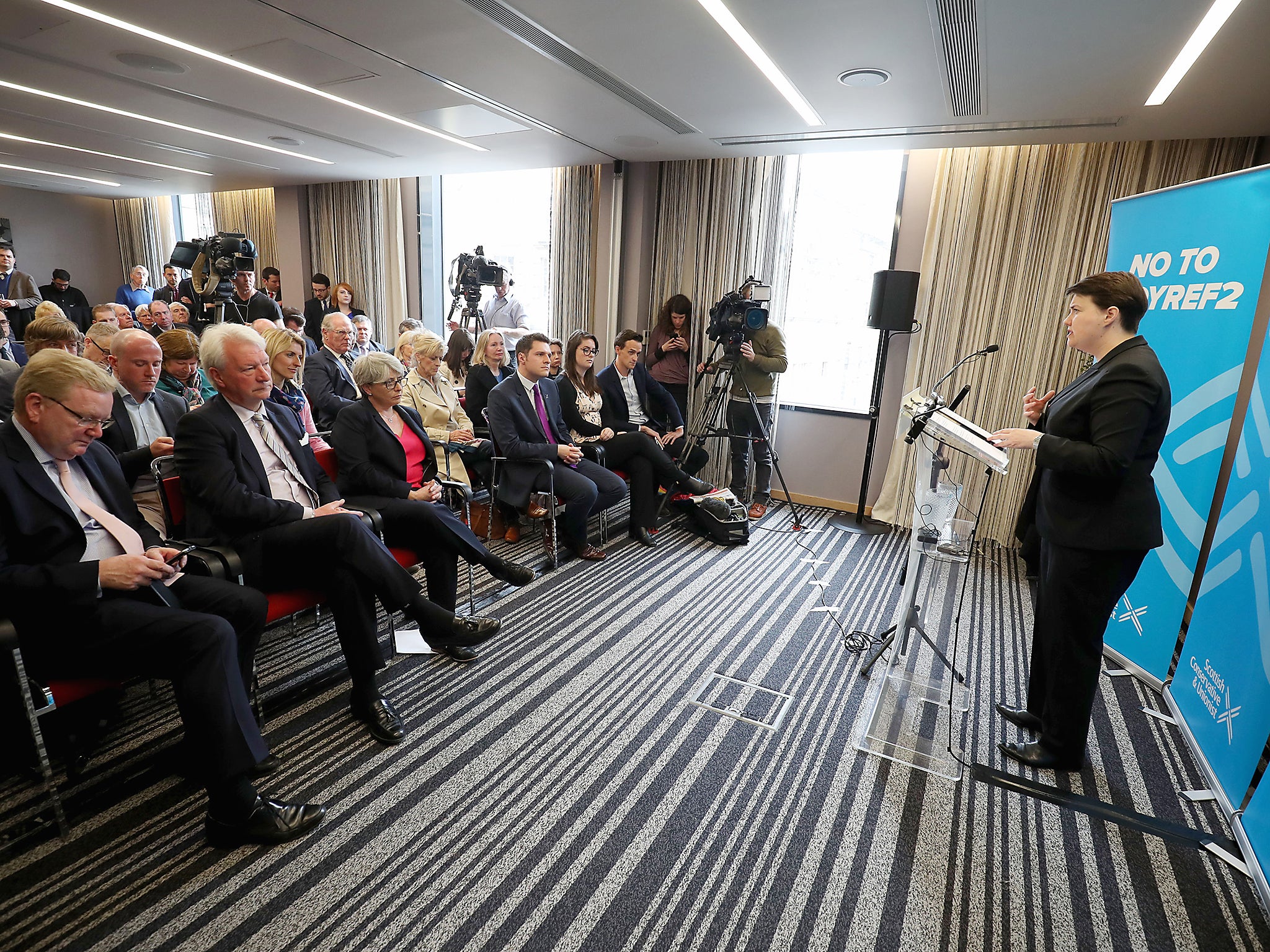Local elections 2017: Labour suffers historic losses as Tories gain big in Scotland
Tories prosper after vowing to 'stand up for everyone who doesn't want a second referendum on independence'

Your support helps us to tell the story
From reproductive rights to climate change to Big Tech, The Independent is on the ground when the story is developing. Whether it's investigating the financials of Elon Musk's pro-Trump PAC or producing our latest documentary, 'The A Word', which shines a light on the American women fighting for reproductive rights, we know how important it is to parse out the facts from the messaging.
At such a critical moment in US history, we need reporters on the ground. Your donation allows us to keep sending journalists to speak to both sides of the story.
The Independent is trusted by Americans across the entire political spectrum. And unlike many other quality news outlets, we choose not to lock Americans out of our reporting and analysis with paywalls. We believe quality journalism should be available to everyone, paid for by those who can afford it.
Your support makes all the difference.Labour was knocked back badly in Scotland, as the Conservatives made big gains – losing control of the iconic stronghold of Glasgow and two other councils.
The SNP finished as comfortably the biggest winners in the local elections, replacing Labour as the largest party in Glasgow while falling short of winning a majority.
SNP leader Nicola Sturgeon, the country's first minister, said her party had achieved “a clear and emphatic victory”. The Nationalists also replaced Labour as the largest party in Edinburgh and Aberdeen.
But the headlines were made by the Tories, who gained a stunning 164 seats, albeit a notional figure because the elections were fought on different boundaries than last time, in 2012.
They included a victory for a Tory candidate who snatched a seat covering the Ferguslie Park estate in Paisley, west of Glasgow, the poorest part of Scotland.
Ruth Davidson, the Scottish Conservatives’ leader, pointed to her determination to “stand up for everyone who doesn't want a second referendum on independence”.
“We will demand that politicians of all parties focus instead on the things that matter: restoring excellence to Scotland's schools and getting our economy back to health,” she pledged.
Labour was calculated to have lost 133 seats, losing control of South Lanarkshire and West Dunbartonshire, as well as Glasgow.
Support slumped across the country, with the party finishing third behind the SNP and Conservatives in Edinburgh - where it had been the largest party.
Scottish Labour leader Kezia Dugdale acknowledged the results for her party across the country were “disappointing”, but added they were “not particularly a surprise”.
The vote in Scotland had split on constitutional lines, with many unionists backing the Conservatives, Ms Dugdale admitted.
Labour last lost control of Glasgow between 1977 and 1980, when it was under no overall control.
The loss follows the party losing all its MPs in the city at the 2015 general election, with the SNP sweeping the board there.
Ms Sturgeon said the SNP’s results would provide a great launchpad for next month's general election.
“The SNP had won the council elections. We have more votes, more seats and are in the driving seat of more councils than any other party,” she said.
The SNP will now attempt to form either a coalition or minority administration in Glasgow for the first time, after winning 39 seats - while Labour dropped to 31.
No party managed to win majority control of a council – which means they will all either be run by coalition or minority administrations.
The election used the single transferable vote system (STV), with voters ranking candidates in order of preference.
People aged 16 or over were eligible to vote, with more than 4.1 million people in Scotland registered.
Join our commenting forum
Join thought-provoking conversations, follow other Independent readers and see their replies
Comments